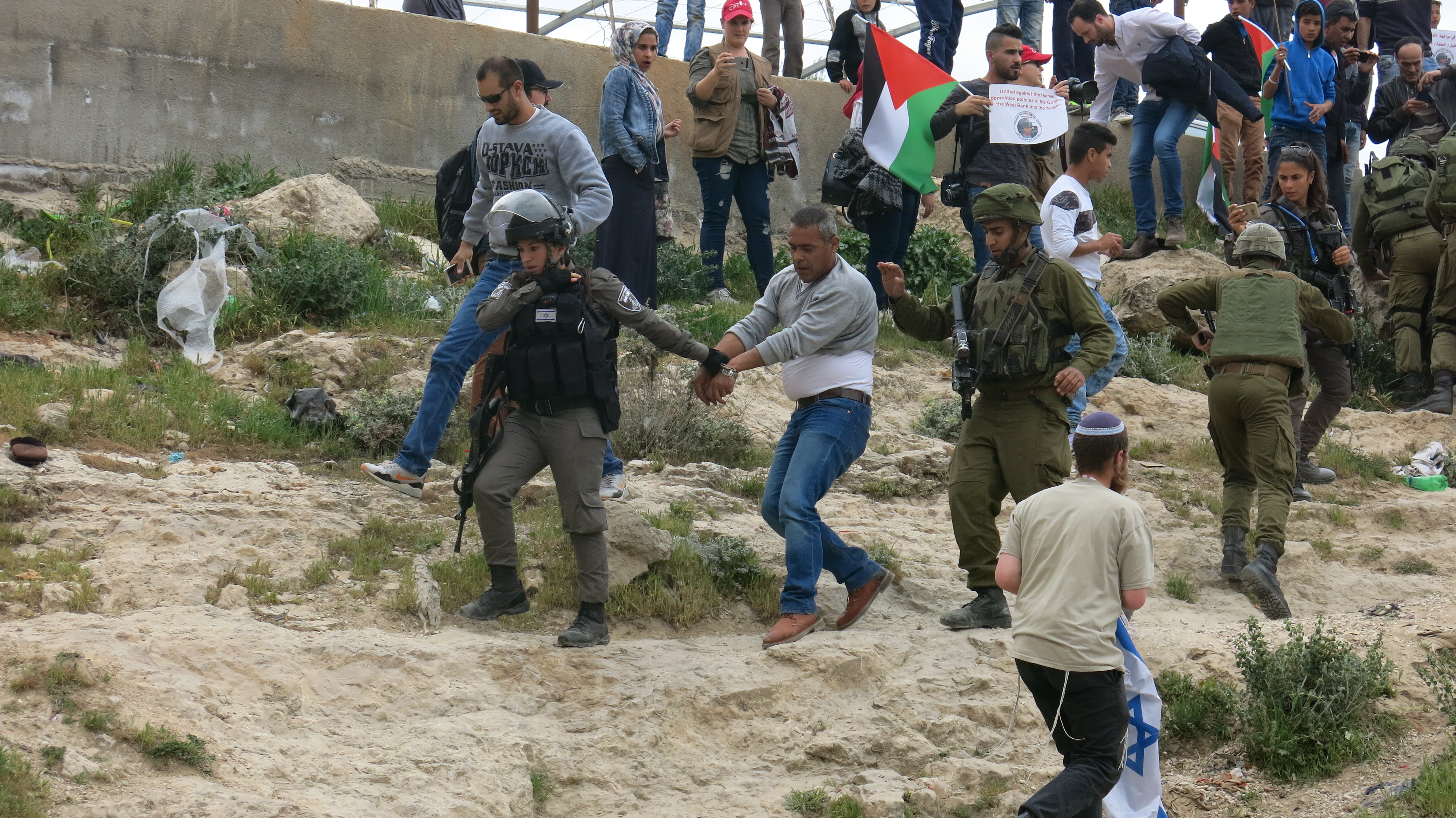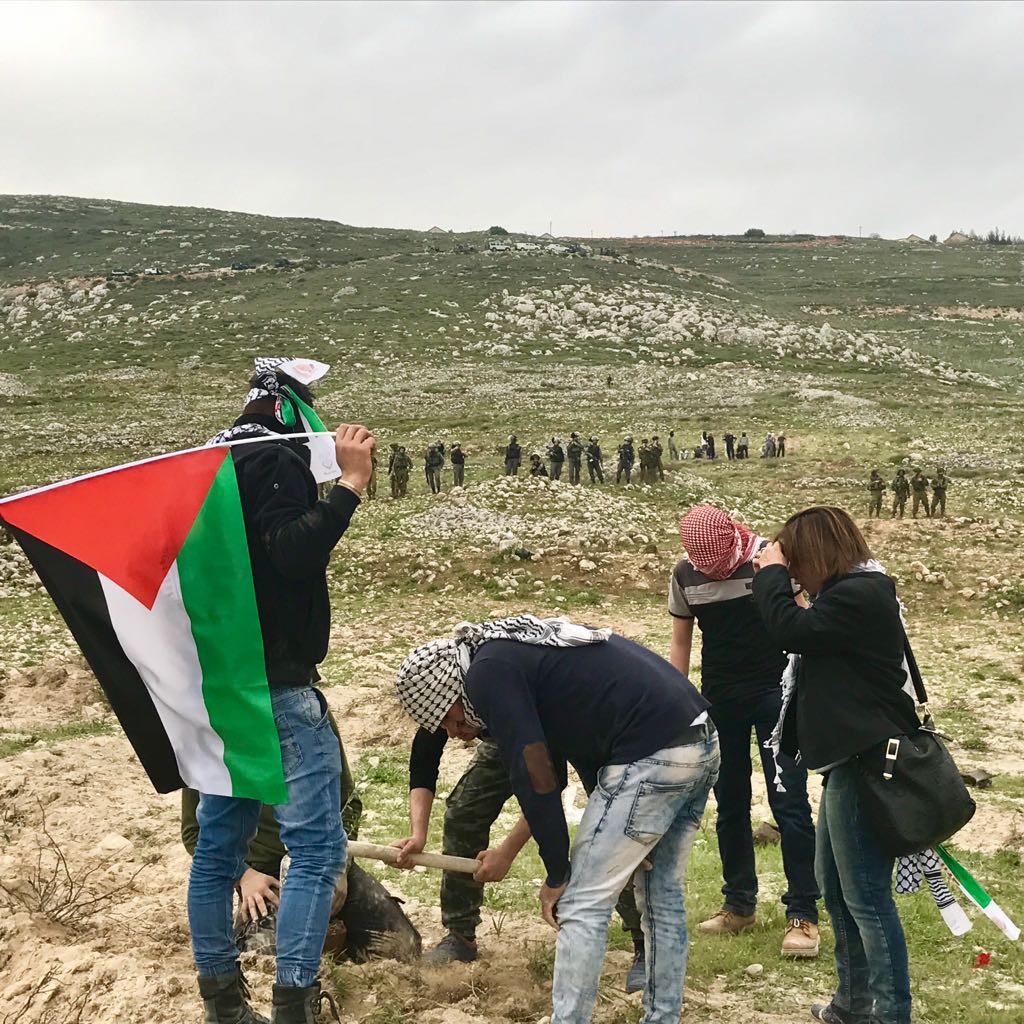Category: Features
-
Israeli forces increase restrictions in Hebron neighborhood
2nd April 2017 | International Solidarity Movement, al-Khalil team | Hebron, occupied Palestine On Saturday night, Israeli forces expanded a road-closure near Shuhada checkpoint in occupied al-Khalil (Hebron), moving it further into the H1 area – that which is officially under full Palestinian control. After midnight on Saturday, 1st April 2017, Israeli forces began moving…
-
URGENT ACTION: Four Palestinian Human Rights Defenders arrested facing military trial
1st April 2017 | International Solidarity Movement, al-Khalil team | Hebron, occupied Palestine The four human rights activists arrested three days ago on Thursday 30th March on a peaceful Land Day protest action now face the Israeli military court at Ofer tomorrow, 2nd April. They are charged with participating in an illegal demonstration and being…
-
Madama village marks Land Day 2017 under heavy military violence
31st March 2017 | International Solidarity Movement, Ramallah team | Madama, occupied Palestine Thursday the 30th of March was Land Day, a day in which Palestinians and their supporters commemorate the loss of huge amounts of land, stolen by the Zionist colonisers in 1976. In Madama village, in the Nablus area, around 300 Palestinian activists…



